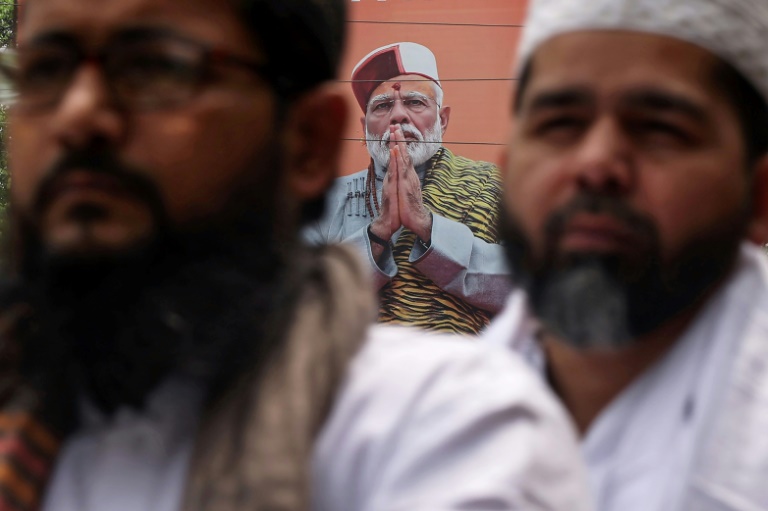Modi the favourite as India readies for election marathon

Modi remains roundly popular after a decade in office that has seen India rise in diplomatic clout and economic power
New Delhi – India begins voting Friday in a six-week election, with Hindu nationalist Prime Minister Narendra Modi’s victory all but assured, raising concerns for the health of the world’s largest democracy.
Modi remains roundly popular after a decade in office that has seen India rise in diplomatic clout and economic power, as well as efforts by his government to bring the country’s majority faith in ever closer alignment with its politics.
Analysts have long expected him to win against a fractious alliance of more than two dozen parties who have yet to name a candidate for prime minister.
Modi’s prospects have been further bolstered by several criminal probes into his opponents, sparking concerns from UN rights chief Volker Turk and human rights organisations that the vote will be skewed.
“I don’t need the United Nations to tell me our elections should be free and fair,” foreign minister S. Jaishankar told reporters while campaigning this month.
“The people of India will ensure that,” he added. “So don’t worry about it.”
Modi, 73, has already led the ruling Bharatiya Janata Party (BJP) through two landslide victories in 2014 and 2019, forged in part by his appeals to the Hindu faithful.
This year in the town of Ayodhya, he presided over the inauguration of a grand temple to the deity Ram, built on the grounds of a centuries-old mosque razed by Hindu zealots.
Construction of the temple fulfilled a long-standing demand of Hindu activists and was widely celebrated across India with back-to-back television coverage and street parties.
“The nation is creating the genesis of a new history,” he told the thousands gathered for the ceremony, among them Bollywood celebrities and cricket stars.
– ‘Our ability to fight’ –
The opposition Congress party, which ruled the country almost uninterrupted for decades after independence from Britain, is meanwhile a shadow of its former self and out of office in all but three of the country’s 28 states.
Its leaders have stitched together an alliance of more than two dozen regional parties to present a united front against the BJP’s well-oiled and well-funded electoral juggernaut.
But the bloc has been plagued by disputes over seat-sharing deals and suffered the defection of a leading member to the government.
It has also accused Modi’s government of using law enforcement agencies to selectively target the bloc’s leaders, several of whom are the subject of active criminal investigations.
Among them is Delhi chief minister Arvind Kejriwal, who was arrested last month and remains in custody on allegations his party received kickbacks while handing out liquor licences to private companies.
Rahul Gandhi is the most prominent Congress politician, and his father, grandmother and great-grandfather all served as prime minister.
He was briefly disqualified from parliament last year after being convicted of criminal libel.
His party’s bank accounts have been frozen since February by India’s income tax department after a dispute over returns that were filed five years ago.
“We have no money to campaign, we cannot support our candidates,” the 53-year-old told reporters last month. “Our ability to fight elections has been damaged.”
– ‘Contempt for all dissent’ –
Modi’s tenure has seen India overtake former colonial ruler Britain as the world’s fifth-biggest economy, with Western nations lining up to court a prospective ally against regional rival China’s growing assertiveness.
In doing so, they have sidestepped concerns over the taming of India’s once-vibrant press and restrictions on civil society that have seen rights groups like Amnesty severely curtail their local operations.
Last year, the tax office raided the BBC’s local offices weeks after the British broadcaster aired a documentary questioning Modi’s role in 2002 religious riots that killed around 1,000 people, most of them Muslims.
Should Modi win again, his third term “will be even more characterised by contempt for all dissent”, political scientist Suhas Palshikar told AFP.
Gandhi has criticised the government for democratic backsliding and its chest-thumping Hindu nationalism, which have left many among the country’s 220-million-strong Muslim minority fearful for their futures.
But Gandhi has already led Congress to two defeats against Modi and his efforts to dent the premier’s popularity have failed to register with voters.
Published opinion polls are rare in India, but a Pew survey last year found Modi was viewed favourably by nearly 80 percent of the public.
A total of 968 million people are eligible to vote in the election — more than the entire population of the United States, European Union and Russia combined.
Voting will be staggered over seven stages between April 19 and June 1, with more than a million polling stations across the country.
Ballots from around the country will be counted all at once on June 4 and are usually announced on the same day.
